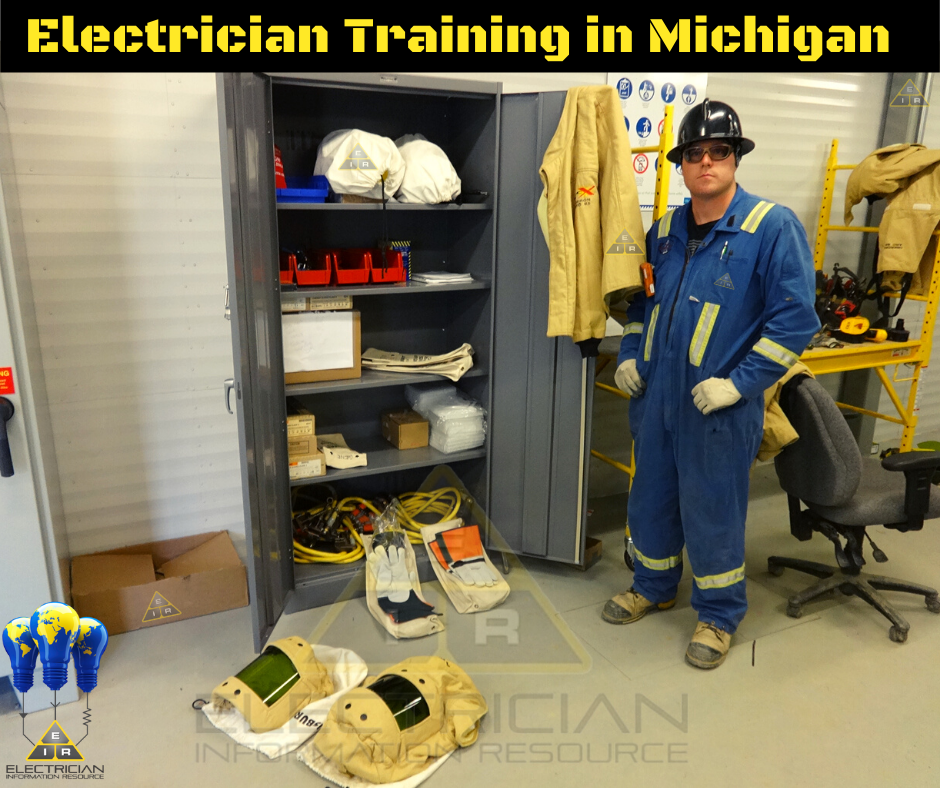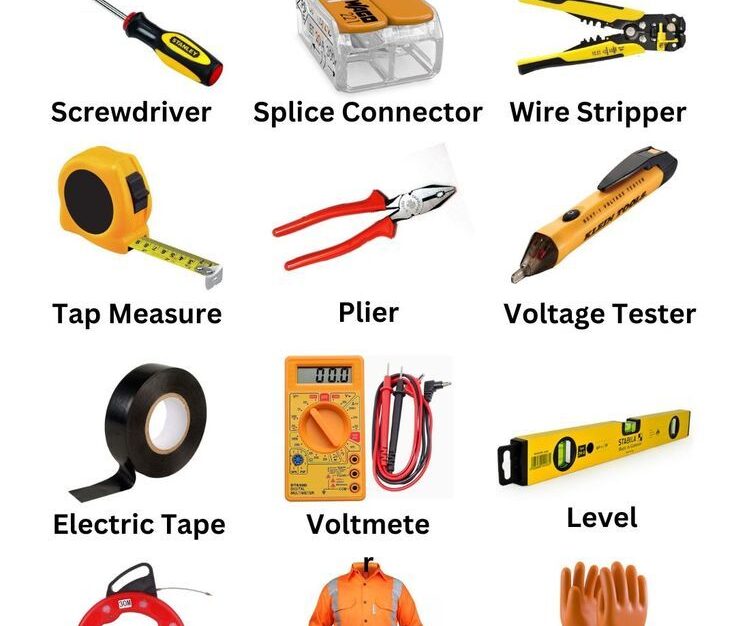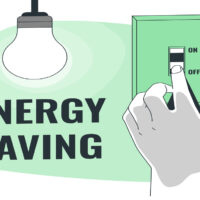To become an electrician, complete a high school diploma and enroll in a technical school or apprenticeship program. Gain practical experience and obtain necessary certifications.
Electricians play a crucial role in installing, maintaining, and repairing electrical systems. The career path offers stability and growth opportunities. Start by earning a high school diploma, focusing on math and science courses. Enroll in a technical school or apprenticeship to gain hands-on experience.
Apprenticeships usually last four to five years and provide valuable on-the-job training. Completing the program makes you eligible for licensing exams, which vary by state. Once certified, you can work in various settings, including residential, commercial, and industrial environments. This fulfilling career demands ongoing education to stay updated on new technologies and safety standards.
Introduction To The Electrician Profession
The electrician profession is exciting and essential. Electricians power our homes, schools, and offices. They ensure we have electricity safely and efficiently.
What Electricians Do
Electricians install, maintain, and repair electrical systems. They work on wiring, lighting, and electrical equipment. They also test and inspect electrical systems to ensure safety.
- Install wiring and electrical devices
- Maintain electrical systems and equipment
- Repair faulty wiring or electrical parts
- Test electrical systems for safety
Types Of Electricians
There are various types of electricians. Each type has a specific role. Understanding these roles can help you choose your career path.
| Type | Description |
|---|---|
| Residential Electrician | Works on homes and residential buildings. |
| Commercial Electrician | Handles electrical systems in businesses. |
| Industrial Electrician | Maintains electrical systems in factories. |
| Maintenance Electrician | Ensures electrical equipment works well. |
Educational Requirements
To become an electrician, you need the right education. This section covers the educational requirements to start your journey. We’ll discuss the importance of a high school diploma and relevant coursework.
High School Diploma
First, you must have a high school diploma. This is the basic requirement. Most apprenticeship programs require it. High school education provides essential skills. It also builds a foundation for your future career.
Relevant Coursework
Taking the right courses in high school is crucial. Here are some important subjects:
- Mathematics: Algebra and geometry are key. They help with measurements and calculations.
- Physics: Understanding basic physics is important. It helps you grasp electrical concepts.
- Shop Class: Hands-on experience is valuable. It teaches you about tools and safety.
- Computer Science: Basic computer skills are useful. Many electricians use software and apps.
These courses provide a strong foundation. They help you succeed in further training. They also make you a better candidate for apprenticeships.
Gaining Experience
Becoming an electrician requires hands-on experience. This is where you truly learn the trade. Gaining practical skills is essential. Below are two key ways to gain this experience.
Apprenticeship Programs
Apprenticeship programs offer structured training. They combine classroom instruction with practical work. Apprenticeships usually last four to five years. During this time, apprentices work under experienced electricians. They learn the ins and outs of the job.
Apprentices earn while they learn. They receive a salary and benefits. Apprenticeship programs are often sponsored by unions or contractor associations. These programs are a great way to gain experience and build your network.
Here are some benefits of apprenticeship programs:
- Hands-on experience with real-world projects
- Mentorship from seasoned professionals
- Classroom instruction to understand electrical theory
- Earning a salary while you learn
On-the-job Training
On-the-job training is another way to gain experience. This training happens while you work. You learn by doing the tasks required in the job.
On-the-job training often starts with basic tasks. As you gain skills, you take on more complex jobs. This form of training helps you understand the day-to-day duties of an electrician.
Key aspects of on-the-job training include:
- Learning safety protocols and procedures
- Gaining technical skills like wiring and troubleshooting
- Understanding customer service and communication
- Working with different tools and equipment
Both apprenticeship programs and on-the-job training are crucial. They help you gain the experience needed to become a skilled electrician.
Certification And Licensing
Becoming an electrician is a rewarding and stable career choice. Before you start working, you need certification and licensing. These ensure you meet the professional standards. They also guarantee you provide safe and reliable services. Let’s dive into the key areas you need to focus on.
State Requirements
Each state has its own requirements for electricians. You must understand these before starting your career. Here is a simple breakdown:
- Complete a high school diploma or GED.
- Enroll in a state-approved apprenticeship program.
- Gain hands-on experience, usually 4-5 years.
- Pass a state-specific licensing exam.
Some states also have continuing education requirements. This ensures you stay updated with new technologies and safety standards.
National Certifications
National certifications add value to your credentials. They show a higher level of expertise. Here are some popular options:
| Certification | Organization | Details |
|---|---|---|
| Certified Electrical Safety Compliance Professional (CESCP) | NFPA | Focuses on electrical safety standards and compliance. |
| Certified Electrician (CE) | National Institute for Certification in Engineering Technologies (NICET) | Validates your technical skills and knowledge. |
| Journeyman Electrician | International Brotherhood of Electrical Workers (IBEW) | Recognizes the completion of a rigorous apprenticeship. |
These certifications improve your job prospects and earning potential. They also show employers and clients your commitment to excellence.
Developing Essential Skills
To become a successful electrician, developing essential skills is crucial. These skills fall into two main categories: technical skills and soft skills. Both are important for electricians to perform their duties effectively and safely.
Technical Skills
Technical skills are the foundation of an electrician’s expertise. These skills include:
- Understanding Electrical Systems: Knowing how electrical systems work is vital.
- Reading Blueprints: Electricians must read and understand blueprints and schematics.
- Wiring and Installation: Proper wiring and installation techniques ensure safety and efficiency.
- Using Tools: Electricians need to be proficient with various tools like pliers, wire strippers, and multimeters.
- Safety Protocols: Following safety protocols prevents accidents and injuries.
Soft Skills
Soft skills are just as important as technical skills. These include:
- Communication: Clear communication with clients and team members is essential.
- Problem-Solving: Electricians often face unexpected issues and must solve them quickly.
- Attention to Detail: Small errors can lead to big problems, so precision is key.
- Time Management: Managing time efficiently ensures projects are completed on schedule.
- Customer Service: Providing excellent customer service builds trust and repeat business.

Credit: www.electricianinformationresource.com
Tools And Equipment
Becoming an electrician requires knowledge and skill. But having the right tools and equipment is equally important. The right tools make the job easier and safer. Let’s explore the essential tools and advanced equipment every electrician should have.
Basic Tools
The basic tools are a must for any electrician. These tools help with common tasks and ensure precision.
- Wire Strippers: These are used for stripping insulation from wires.
- Screwdrivers: Different types for various screws, like flat-head and Phillips.
- Pliers: Used for gripping, twisting, and cutting wires.
- Voltage Tester: Checks if a wire is live.
- Measuring Tape: Measures lengths and distances accurately.
- Fish Tape: Helps pull wires through conduits.
Advanced Equipment
Advanced equipment is essential for more complex tasks. These tools offer precision and efficiency.
| Tool | Purpose |
|---|---|
| Multimeter | Measures voltage, current, and resistance. |
| Oscilloscope | Displays electrical signals as waveforms. |
| Thermal Imaging Camera | Detects hot spots in electrical systems. |
| Power Drill | Drills holes in walls and other surfaces. |
Both basic and advanced tools are critical for an electrician. They ensure safety, precision, and efficiency on the job.
Safety Practices
Becoming an electrician requires a focus on safety practices. Working with electricity is risky. Following safety rules keeps you safe. This section covers essential safety practices for electricians.
Workplace Safety
Understanding workplace safety is crucial. Always wear protective gear. This includes gloves, goggles, and helmets. Check your tools before use. Faulty tools can cause accidents.
- Wear insulated gloves.
- Use safety goggles.
- Inspect tools daily.
Keep the work area clean. A tidy workspace prevents trips and falls. Mark hazardous areas clearly. Use signs and barriers to keep others safe.
- Maintain a clean workspace.
- Mark hazardous zones.
- Use safety signs.
Regulatory Compliance
Adhering to regulatory compliance is essential. Follow local and national electrical codes. These codes ensure safe installations. Regularly update your knowledge of these codes.
- Study local electrical codes.
- Follow national safety standards.
- Attend training sessions.
Always get the necessary permits. Permits show that your work meets safety standards. Keep all documentation organized. This helps in inspections and audits.
- Obtain required permits.
- Keep records organized.
- Prepare for inspections.
Staying updated with safety practices saves lives. It ensures a long and successful career.
Career Advancement
Advancing in your career as an electrician opens many doors. From higher salaries to specialized fields, the opportunities are endless. Let’s explore how you can climb the career ladder.
Continuing Education
Continuing education keeps electricians updated with the latest technologies and safety standards. Many organizations offer courses on advanced electrical systems. These courses often cover topics like smart home technology and renewable energy systems.
Many electricians also pursue certifications. For example, obtaining a Master Electrician license can significantly boost your career. Continuing education classes are available online or at local trade schools. Below is a table summarizing some common certifications:
| Certification | Benefits |
|---|---|
| Master Electrician | Higher pay, more job opportunities |
| Renewable Energy Technician | Specialization in solar and wind energy |
| Smart Home Technician | Expertise in smart home installations |
Specialization Options
Specializing in a specific area can set you apart. Some electricians focus on residential work. Others might specialize in commercial or industrial systems. Below are some popular specialization options:
- Residential Electrician – Focuses on home electrical systems.
- Commercial Electrician – Works on electrical systems in businesses.
- Industrial Electrician – Handles complex systems in factories.
- Maintenance Electrician – Ensures systems run smoothly.
Specializing can lead to higher pay and job security. Choose a field that matches your interests and skills. With the right specialization, your career will thrive.
Job Search Tips
Starting a career as an electrician is exciting. You need to find the right job to begin your journey. Here are some job search tips to help you get started.
Building A Resume
Your resume is your first impression. Make it count! Include your contact information at the top. List your education and certifications. Highlight your skills and experience. Use bullet points to keep it clear and easy to read.
| Section | Details |
|---|---|
| Contact Information | Phone number, email, address |
| Education | School name, graduation year |
| Certifications | Electrician license, safety training |
| Skills | Wiring, troubleshooting, blueprints |
| Experience | Previous jobs, apprenticeships |
Interview Preparation
Interviews can be nerve-wracking. Prepare well to succeed. Research the company before your interview. Understand their services and values. Practice common interview questions. Keep your answers short and to the point. Dress appropriately for the interview.
- Research the company’s services
- Understand their core values
- Practice interview questions
- Dress professionally
- Arrive on time
Remember to bring copies of your resume and certifications. Show confidence and be polite. Good luck!
Credit: www.jobcase.com
Conclusion And Next Steps
Becoming an electrician is a rewarding career choice. It involves several steps and requires dedication. After completing your training and gaining experience, there are important steps to keep your career on track. Let’s discuss setting career goals and maintaining certification.
Setting Career Goals
Setting clear career goals is essential. It helps you stay focused and motivated. Here are some steps to set effective career goals:
- Define Your Interests: Identify which areas of electrical work excite you.
- Set Short-Term Goals: Plan what you want to achieve in the next year.
- Set Long-Term Goals: Think about where you want to be in 5-10 years.
- Create a Timeline: Establish deadlines for each goal to stay on track.
- Seek Mentorship: Find a mentor in the industry to guide you.
Maintaining Certification
Maintaining your certification is crucial for your career. Here are some tips to ensure you stay certified:
- Renew Regularly: Check the expiration date of your certification and renew it on time.
- Continue Education: Attend workshops and courses to stay updated with industry standards.
- Keep Records: Maintain a log of your continuing education and work experience.
- Stay Informed: Follow industry news and updates to know any changes in certification requirements.
| Action | Frequency |
|---|---|
| Renew Certification | Every 2-3 years |
| Attend Workshops | Annually |
| Log Work Experience | Monthly |
Frequently Asked Questions
What Qualifications Do You Need To Become An Electrician?
To become an electrician, you need a high school diploma or GED. You also need to complete an apprenticeship program. This usually lasts four to five years.
How Long Does It Take To Become An Electrician?
Becoming an electrician typically takes about four to five years. This includes completing an apprenticeship. Some programs may vary slightly in duration.
What Skills Are Important For Electricians?
Important skills for electricians include problem-solving, manual dexterity, and attention to detail. Good communication and customer service skills are also valuable.
Can You Become An Electrician Without An Apprenticeship?
No, an apprenticeship is essential to become a licensed electrician. It provides practical experience and technical knowledge.
Conclusion
Embarking on a career as an electrician offers great opportunities. Follow the steps outlined to gain skills and certifications. With dedication and proper training, you can achieve success. Start your journey today and light up your future as a professional electrician.
Your new career awaits!







